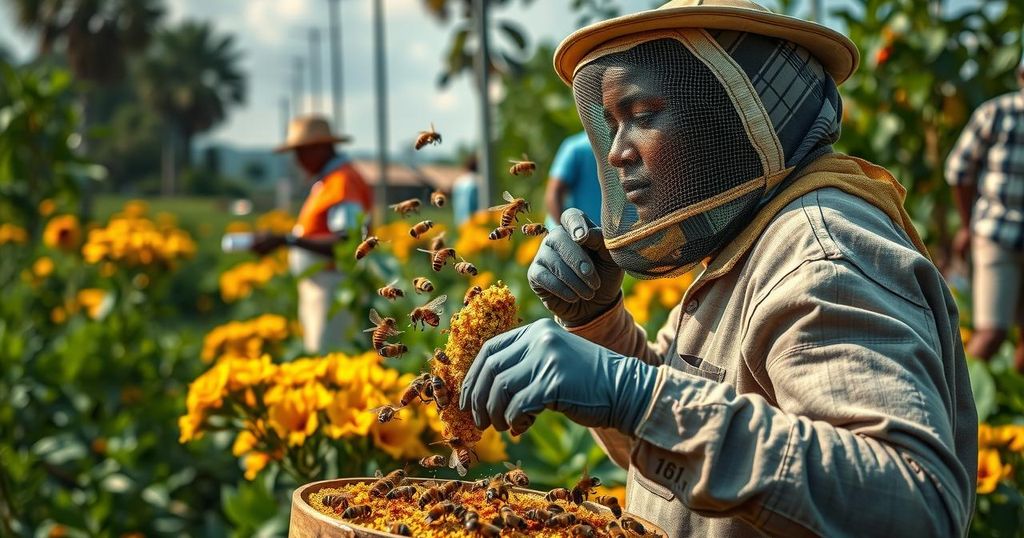Beekeeping is being promoted in Kenya as a climate-resilient livelihood option for communities affected by climate change, particularly in drylands. This approach provides financial stability and supports environmental health through enhanced biodiversity and pollination efforts.
The impact of climate change is acutely felt in dryland regions, particularly in Kenya, where prolonged droughts and erratic rainfall have severely undermined traditional livelihoods such as agriculture and livestock rearing. In response to these environmental challenges, conservation experts are innovating solutions to create climate-resilient alternatives. One such solution is promoting beekeeping as a sustainable livelihood, providing communities with a steady source of income and enhancing food security through pollination. This initiative not only supports economic resilience but also bolsters environmental health by fostering biodiversity and supporting ecosystems.
Kenya is home to numerous communities that depend on agriculture and livestock for their livelihoods. However, increasing frequency and intensity of climate events, including droughts and floods, have led to diminished agricultural productivity. According to the U.N. Environment Program, dryland communities are among the most vulnerable to the effects of climate change. As these communities struggle to adapt, transformative approaches such as beekeeping provide significant potential for enhancing economic stability and addressing environmental degradation.
In summary, as climate change continues to adversely impact traditional livelihoods in Kenya, beekeeping emerges as a viable alternative for affected communities. This approach not only helps diversify income sources but also strengthens environmental sustainability. By integrating beekeeping into their economic strategies, these communities can build resilience against climate variability while contributing to the preservation of their ecosystems.
Original Source: www.voanews.com







